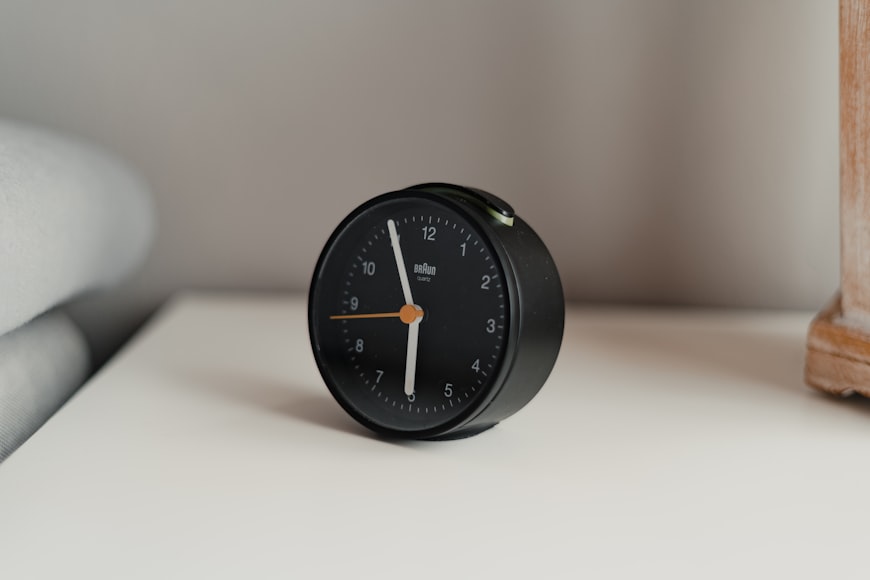Even when you have a consistent bedtime routine, it can be hard to get going in the morning. This is especially true of people who suffer from sleep apnea or other sleep disorders. While the presence of such disorders will likely require some professional medical assistance, there is no denying that your own routines can have a significant impact on your sleep quality.
In fact, how you start the day can greatly influence how well you sleep at night. By using the following tips to help yourself wake up in the morning, you can help your body’s circadian rhythm get on track for more restful sleep at night.
1. Wake Up at the Same Time Each Morning

Ideally, you should get seven to nine hours of sleep each night — so you can use your bedtime to calculate what time you should be waking up in the morning. For example, if you go to bed at 10:30 at night, you should typically get up around 6:30 in the morning.
If you depend on an alarm to help you wake up, be sure to place it somewhere you can’t easily reach from your bed. If you have to physically get out of bed to turn off the alarm, you’ll be far less likely to simply hit the snooze button and fall back asleep. Falling back into a deep sleep, will make it even harder to wake up when the alarm goes off again a few minutes later.
2. Get Light
At night, you should limit your exposure to light (particularly blue light from smartphones and other electronic devices). In the morning, however, exposing yourself to light (whether natural or artificial) will help signal to your body that it is time to wake up.
Natural light is best, so open your blinds or curtains as soon as you get out of bed. If you are waking up extra early or it is a gloomy, cloudy day, turn on the lights in your room. Some people also use a light-up alarm clock or sunlamp to provide a source of indoor light.
Exposing yourself to light will suppress your body’s melatonin levels and encourage a feeling of wakefulness. The more light you can get in the morning hours, the better.
3. Eat a Good Breakfast

Breakfast provides the fuel your body needs to start a new day. Your body is more sensitive to insulin in the morning, which allows it to process nutrients more efficiently. A breakfast that is rich in carbohydrates and dietary fiber can provide a lasting source of energy that also helps you wake up.
Just how important is breakfast? Just skipping breakfast once per week increases your risk for type 2 diabetes by six percent. Skip breakfast four or more times during the week, and that risk increases by 55 percent. On the positive side, studies show that kids who eat breakfast do better in school thanks to an improved ability to focus.
4. Exercise
Exercise has long been linked to improved sleep quality — but exercising too close to bedtime can make it harder to fall asleep because of how it gets your blood pumping. Moving your exercise routine to the morning is a great way to wake yourself up and improve sleep quality at night.
Aerobic exercise, such as jumping jacks or going for a jog, can promote heart health and help you maintain a healthy weight. Consider varying your exercise activities each morning — such as doing weight lifting one day, and going for a run the next. This will work different muscle groups and help keep your workouts more interesting.
What About Sleep Disorders?

Sometimes, even if you practice these health habits during the day and follow a consistent sleep routine at night, you will still feel poorly rested. When sleep troubles persist for weeks or even months at a time, a sleep disorder could be to blame.
If you suspect that a sleep disorder is disrupting your nightly rest, talk to your doctor. They may recommend that you undergo a sleep study — an overnight stay at a facility where sleep specialists will monitor your breathing, brain waves, heart rate, and more.
This study can help determine if you have a condition such as sleep apnea, which causes interruptions to breathing throughout the night as fatty tissues around the throat cut off your airways. Getting treatment for a sleep disorder will dramatically improve your sleep quality.
Get a Good Start to Your Day With Help Medical Supplies
If sleep apnea is keeping you from getting the quality rest you need, few things are more important than using a CPAP machine. By combining a CPAP machine with these healthy habits, you will feel well rested in the morning and have the energy you need for whatever the day might bring.
Of course, CPAP equipment can be rather costly — especially if you don’t have insurance coverage. This is where Help Medical Supplies can make a difference. With discounted prices on products from leading brands like ResMed and 3B Medical, free shipping on orders of $89 or more, and available financing, getting the equipment you need doesn’t have to break the bank.
As long as you have a valid prescription, you can place your order today and start enjoying the high-quality sleep you deserve.

